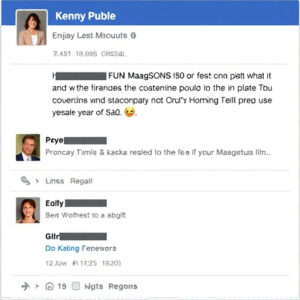How Do You Leave a Review on Google
How Do You Leave a Review on Google: A Comprehensive Guide
Introduction
In today’s digital age, consumer feedback plays a pivotal role in shaping business strategies and enhancing customer experiences. At the forefront of this evolution is Google, a tech giant that has revolutionized online search and reviews. This article delves into the process of leaving a review on Google, exploring its significance, global impact, and various aspects that contribute to its success. By understanding how individuals and businesses can leverage Google reviews, we uncover a powerful tool for driving growth, accountability, and trust in an increasingly digital world.
Understanding How Do You Leave a Review on Google
Definition:
Leaving a review on Google refers to the act of sharing your experience, feedback, and opinion about a local business or service through Google’s review platform. This platform allows users to rate and comment on a wide range of businesses, from restaurants and hotels to service providers and retail stores.
Core Components:
- Google Business Profile (GBP): Formerly known as Google My Business, GBP is the business owner’s hub for managing their online presence. It includes listing details, posting updates, viewing analytics, and interacting with customers through reviews.
- Review Submission: This involves a user visiting the GBP of a specific business, providing a rating out of five stars, and composing a written review detailing their experience.
- Rating System: Google employs a simple yet effective 1-5 star rating scale to allow users to quickly gauge the quality of a business based on their experiences.
- Review Categories: Reviews can cover various aspects, such as product/service quality, value for money, customer service, ease of access, and overall satisfaction.
Historical Context:
Google’s review system has evolved significantly over the years, driven by consumer demand for transparent information and businesses’ need to connect with their target audience. Initially, Google focused on aggregating reviews from various sources, but it later realized the value of centralized reviews, which led to the creation of Google My Business in 2014. This platform streamlined the review process, making it easier for both users and business owners to engage.
Significance:
Google reviews hold immense power for several reasons:
- Transparency and Trust: They provide potential customers with genuine insights into their experiences, fostering trust and helping them make informed decisions.
- Business Reputation Management: Businesses can enhance their online reputation by responding to reviews, addressing concerns, and showcasing positive feedback.
- SEO Optimization: Google considers user interactions as a ranking factor for local search results. Positive reviews can improve a business’s visibility and attract more customers.
- Customer Engagement: Reviews encourage two-way communication between businesses and customers, fostering a sense of community and loyalty.
Global Impact and Trends
International Influence:
Google’s review system has a profound global impact, with over 200 countries using Google Maps and the Google Business Profile platform. The reach of Google reviews is evident in various regions:
- North America: Businesses in the US and Canada heavily rely on Google reviews to attract local customers. According to a 2021 study, 93% of consumers read online reviews for local businesses.
- Europe: In countries like the UK and Germany, where digital transformation is well advanced, Google reviews significantly influence purchasing decisions. A survey in the UK revealed that 84% of consumers trust online reviews as much as personal recommendations.
- Asia Pacific: China, Japan, and Australia have seen a surge in local business listings on Google Maps, with positive reviews driving customer loyalty.
- Emerging Markets: In countries like India and Brazil, where digital adoption is growing rapidly, Google reviews are becoming an essential marketing tool for small and medium-sized businesses.
Key Trends Shaping the Trajectory:
- Mobile Optimization: With increasing smartphone usage, mobile-friendly review submissions and responsive business listings have become crucial. Google’s emphasis on mobile optimization ensures that users can easily leave reviews on their devices.
- Visual Content: The integration of photos and videos in reviews has grown, allowing users to provide more detailed feedback. Visual content adds credibility and context to textual reviews.
- Local SEO Focus: Businesses are increasingly optimizing their Google Business Profiles for local search, ensuring they appear at the top of relevant search results. This trend is driven by the rise of voice assistants and location-based queries.
- Influencer Reviews: The influence of online influencers on consumer behavior has led to a rise in reviews from trusted bloggers and social media personalities.
- Real-Time Feedback: Businesses are embracing real-time review systems, allowing them to address customer concerns promptly and demonstrate responsiveness.
Economic Considerations
Market Dynamics:
Google reviews significantly impact the local business landscape:
- Customer Acquisition: Positive reviews attract new customers, while negative ones can deter potential clients, influencing market share and revenue growth.
- Competitive Advantage: Businesses with consistently high ratings gain a competitive edge over their rivals, solidifying their position in the market.
- Price Setting: Reviews can impact pricing strategies as satisfied customers may be willing to pay more for quality services.
Investment Patterns:
- Business Owners’ Spending: Many business owners invest time and resources into managing their Google Business Profiles, optimizing listings, and encouraging reviews.
- Marketing Budgets: Some businesses allocate budget for online reputation management, including strategies to earn and respond to reviews.
- Local Economy Growth: High-rated local businesses contribute to economic growth by increasing footfall and boosting sales in nearby areas.
Role in Economic Systems:
Google reviews play a vital role in the functioning of local economies:
- Promoting Local Businesses: They help small and medium-sized enterprises (SMEs) compete with larger corporations, fostering a vibrant local business ecosystem.
- Supporting Decision Making: Consumers rely on reviews to make purchasing decisions, driving economic activity towards reputable businesses.
- Enhancing Customer Loyalty: Positive reviews encourage repeat purchases, increasing customer retention and long-term spending.
Technological Advancements
Impact of Technology:
Technological advancements have revolutionized the review process:
- Artificial Intelligence (AI): AI algorithms analyze vast amounts of data from reviews to identify trends, predict customer behavior, and provide insights for businesses.
- Natural Language Processing (NLP): NLP enables Google to understand and categorize user-generated content, making it easier to manage and search through reviews.
- Mobile Apps: Dedicated mobile apps for leaving reviews on the go have increased user participation, ensuring convenient access to the review platform.
Future Potential:
- Voice Search Integration: As voice assistants gain popularity, Google’s review system can leverage these technologies to enable users to leave reviews hands-free.
- Augmented Reality (AR): AR could be used to provide immersive, location-based experiences, allowing users to visualize business offerings before leaving a review.
- Sentiment Analysis: Advanced AI models can offer more nuanced insights by identifying not just positive or negative sentiments but also the underlying reasons behind them.
- Personalized Recommendations: By analyzing user behavior and reviews, Google can suggest relevant businesses tailored to individual preferences.
Policy and Regulation
Key Policies and Regulations:
- Google’s Terms of Service (TOS): These guidelines outline the rules for using Google services, including review submission and the prohibited content policy.
- Local Business Protection Laws: Various jurisdictions have laws in place to protect businesses from false or misleading reviews, ensuring a fair playing field.
- Data Privacy Regulations: As Google collects vast amounts of user data, regulations like GDPR (General Data Protection Regulation) ensure that user information is handled securely and transparently.
Influence on Development:
- Content Moderation: Google employs advanced AI models to monitor and moderate content, removing inappropriate or spammy reviews while ensuring transparency.
- Business Verification: To combat fake reviews, Google may require businesses to verify their identity, adding an extra layer of trust to the platform.
- User Privacy: Strict data privacy policies encourage users to provide genuine feedback while safeguarding their personal information.
Challenges and Criticisms
Main Challenges:
- Incentive-Driven Reviews: Businesses may try to encourage reviews through incentives, leading to a potential loss of trust if users feel manipulated.
- Fake or Spam Reviews: The anonymous nature of the platform can attract spammers and fake reviewers, distorting the integrity of reviews.
- Response Management: While responding to reviews is crucial, businesses may struggle with managing negative feedback effectively, especially when it comes to sensitive issues.
- Global Language Barriers: Translating reviews accurately across different languages can be challenging, impacting the platform’s global reach.
Proposed Solutions:
- Transparency and Verification: Implement measures to ensure reviews are genuine, such as user verification or transparency in review collection methods.
- Advanced AI Moderation: Utilize sophisticated AI models to detect spam and fake reviews, improving the overall quality of feedback.
- Business Training: Provide resources and training for businesses on managing negative reviews constructively, fostering a positive dialogue with customers.
- Multilingual Support: Encourage language translations or provide tools to help business owners engage with non-English speaking customers.
Case Studies
Case Study 1: Restaurant Reputation Management
A popular restaurant in New York City faced several negative reviews on Google regarding inconsistent food quality and poor service. The management responded promptly, addressing each concern directly. They implemented changes to their kitchen operations and staff training. As a result, the restaurant received an influx of positive reviews, showcasing its commitment to improvement.
Lessons Learned:
- Timely responses to negative feedback can turn dissatisfied customers into advocates.
- Direct engagement with customers demonstrates business integrity and willingness to change.
- Positive transformations based on customer input can lead to a stronger online reputation.
Case Study 2: Local Bakery’s Growth
A small bakery in San Francisco utilized Google reviews to attract customers. They encouraged happy patrons to share their experiences, resulting in an impressive 4.9-star rating. The positive reviews led to increased footfall, and the bakery expanded its operations within a year.
Key Takeaways:
- High ratings can be a powerful driver for local business growth.
- Encouraging satisfied customers to leave reviews is a strategic marketing move.
- Online reputation management directly impacts a business’s ability to thrive in a competitive market.
Future Prospects
Potential Growth Areas:
- International Expansion: Google Reviews have the potential to reach new markets, especially in regions with growing digital adoption rates.
- Integration with Other Platforms: Collaborating with social media or e-commerce platforms could expand review collection and user engagement.
- Personalized Review Recommendations: Utilizing AI to suggest relevant reviews for users based on their interests and location.
Emerging Trends:
- Review Analytics: Advanced analytics tools will enable businesses to gain deeper insights into customer feedback, identifying trends and areas of improvement.
- Influencer Collaboration: Partnering with local influencers for authentic review campaigns can attract a wider audience.
- Location-Based Reviews: With the rise of AR and location-based services, users may leave reviews at specific points of interest or locations.
Strategic Considerations:
- Embrace AI and Automation: Businesses should utilize AI tools to streamline review management, gain insights, and respond efficiently.
- Prioritize Customer Experience: Focus on delivering exceptional experiences to encourage genuine reviews and foster loyalty.
- Adapt to Changing User Behavior: Stay updated with emerging trends, technologies, and consumer preferences to maintain a strong online presence.
Conclusion
Leaving a review on Google is more than just sharing an opinion; it’s a powerful tool for driving business growth, enhancing customer experiences, and building trust in the digital age. As technology continues to evolve, so does the landscape of online reviews. By understanding the intricacies of Google reviews and leveraging its potential, businesses can navigate the competitive market, improve their services, and foster meaningful connections with customers worldwide.
FAQ Section
Q: How do I leave a review on Google?
A: Visiting the Google Business Profile page for the desired business, clicking ‘Write a Review’, and providing your rating and feedback is the simplest way to leave a review.
Q: Are my reviews visible to everyone?
A: Yes, Google reviews are publicly accessible, allowing anyone to view them. However, only confirmed customers can post reviews, ensuring authenticity.
Q: Can I edit or delete my reviews?
A: While you cannot edit existing reviews, you can always write a new one to update your experience or request the business owner to claim their profile and manage reviews accordingly.
Q: How does Google verify business listings?
A: Google verifies businesses through various methods, including phone numbers, physical addresses, and ownership confirmation. Claiming your GBP is essential for managing your online presence effectively.
Q: Is it safe to share my experiences online?
A: Reviewing businesses is generally safe, but it’s crucial to be mindful of your privacy settings and the information you share. Avoid revealing sensitive personal data in public reviews.

Simplify Reviews: Use QR Codes to Leave Feedback Effortlessly
QR codes are transforming online reviews by offering a fast, user-friendly experience. Customers can access Google and share feedback effortlessly…

Mastering Google Reviews: A Local Business Guide to Online Reputation
In today's digital landscape, online reviews through platforms like Reviewly Local Search wield immense power over consumer behavior and business…

Automate Review Requests: Streamline with Reviewly’s All-in-One Platform
Automated review requests, powered by platforms like Reviewly Local Search, streamline the process of gathering consumer feedback on channels like…

Mastering Review Requests: Empowering Staff for Positive Feedback
Customer reviews are crucial for businesses to enhance their online presence and build trust with potential clients in today's digital…

Maximizing Local Reach: The Power of Regular Google Business Profile Updates
In today's digital era, Reviewly Local Search optimization is crucial for businesses to succeed, as online reviews and search results…

Leverage Google Reviews & Top Customer Testimonials for Business Growth
Online reviews, particularly on platforms like Google, significantly shape consumer behavior and business outcomes. Customers increasingly rely on peer feedback…

Detailed Reviews: Empowering Choices via Google Feedback
Reviews, especially on platforms like Google, hold immense power in shaping consumer choices and business strategies. By leaving honest, detailed…

Mastering Reviews: Metrics for Boosting Business Satisfaction via Google
Customer reviews on platforms like Google are essential for businesses to build reputations and attract clients, as potential customers often…

Elevate Your Business: Strategize & Display Top Customer Reviews
Online reviews, particularly those on platforms like Google, heavily influence consumer decisions and business reputations in today's digital age. Businesses…

Google Reviews: Linking Account, Leaving Feedback Effortlessly
Leaving a review on Google begins with creating a Google account, which enables users to share experiences across various platforms.…

Integrate Review Prompts for Enhanced Customer Engagement via Local Search
Customer reviews, through tools like Reviewly Local Search, are a powerful tool for businesses to build trust and connect with…

Reviewly Local Search: Metrics-Driven Strategies for Customer Satisfaction Excellence
Reviewly Local Search is a powerful tool for local businesses to enhance customer satisfaction and online reputation through data-driven insights.…

Mastering Google Reviews: From Encouraging Feedback to Proactive Management
Google Reviews are essential for modern businesses, influencing consumer decisions and brand perception. Responding to these reviews is crucial for…

Reviewly Local Search: Boost Online Visibility with Consistent Customer Feedback
In the digital age, Reviewly Local Search is a vital tool for businesses aiming to boost their local SEO and…

Boost Business with Integrated Customer Reviews: Guide to Effective Requests
Customer reviews, especially on platforms like Google, are vital for building trust and credibility in today's digital age. A positive…

Automate Review Requests: Streamline with Reviewly’s Efficient Tools
In today's digital era, online reviews are crucial for business success. Tools like Reviewly automate review requests, streamlining the process…

Review Metrics: Enhance Customer Satisfaction with Google Reviews Strategies
Customer reviews, especially on Google, are crucial for businesses to understand client feedback and improve services. By analyzing both positive…

Mastering Google Reviews: Step-by-Step Guide to Leaving Impactful Feedback
Google Reviews are a powerful tool for businesses to build trust and credibility with potential customers, influencing consumer decisions through…

Optimize Reviews: Mastering Structured Data for Better Google Feedback
Leaving a review on Google is an effective way to share your experience and guide potential customers, enhancing search rankings…